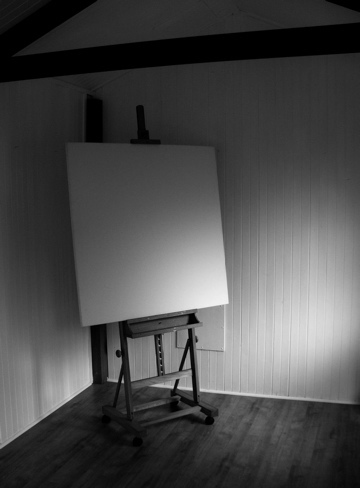Maybe the title of the post poses the question in terms too exclusive, but there’s a lot of me-first propaganda out there for creatives to grab a hold of.
 When I published my first book a year a half ago, I never would have imagined that the subject of creativity and art would become a dominant theme in publishing in the subsequent 18 months. I titled the last chapter of my book “Creativity,” using that theme to capture how I felt it meant to live the Christian life in a way that honors Christ.
When I published my first book a year a half ago, I never would have imagined that the subject of creativity and art would become a dominant theme in publishing in the subsequent 18 months. I titled the last chapter of my book “Creativity,” using that theme to capture how I felt it meant to live the Christian life in a way that honors Christ.
We tend to view art in such narrow terms, my goal was to broaden the perspective toward the way we live, rather than specific artistic forms. Honoring Christ through our lives is not a checklist or a bunch of rules, it is embodied in each moment of every day, and that takes creativity to do well.
The problem I’ve seen as the focus on art and creativity has grown, is that much of it focuses on the artist and the creator only. Hone your craft. Pursue your dreams. But what if that isn’t the purpose of art?
I just read The Art of Helping Others by Douglas Mann, and in it he outlines the kind of creative life that doesn’t exist to build itself up, but instead, others (here’s a website for the book if you’re interested in learning more about the book). Here’s a couple quotes that stood out to me:
“The world is not clean, nice and orderly, tailor made for our own creative expression. It is in a perpetual state of formidable disarray. Yet many of us imagine it to be well and good and fit to suit. And then we wonder why life doesn’t work out, why we suffer. It takes creative people to see the world for what it is, to discern the human condition. To practice creativity is to be more keenly aware of the complexity of the world, to recognize its fragile, fractured soul. It takes creative people to awaken that awareness in others.”
“My personal manifesto includes the idea that worship should never exist merely to serve itself; the byproduct of that idea is that my God-given creativity and creative incitement should help to inspire, strengthen, and build the build.”
This kind of others-centered artistic movement is so needed within the church. Too often artists are encouraged to dive deeper within the self—becoming lost in the fog of self—failing to see how their outward living can benefit others.
The way I see it you have two options. One: Never interact with another human being again. Two: Use your interactions with others to be a blessing. Art, whether in specific form, or authentic living, can never truly be art if it exists only for the artist. It must extend beyond itself to build for the coming Kingdom.
Art in its fullest sense is something that exists to help others. Let’s live into that.